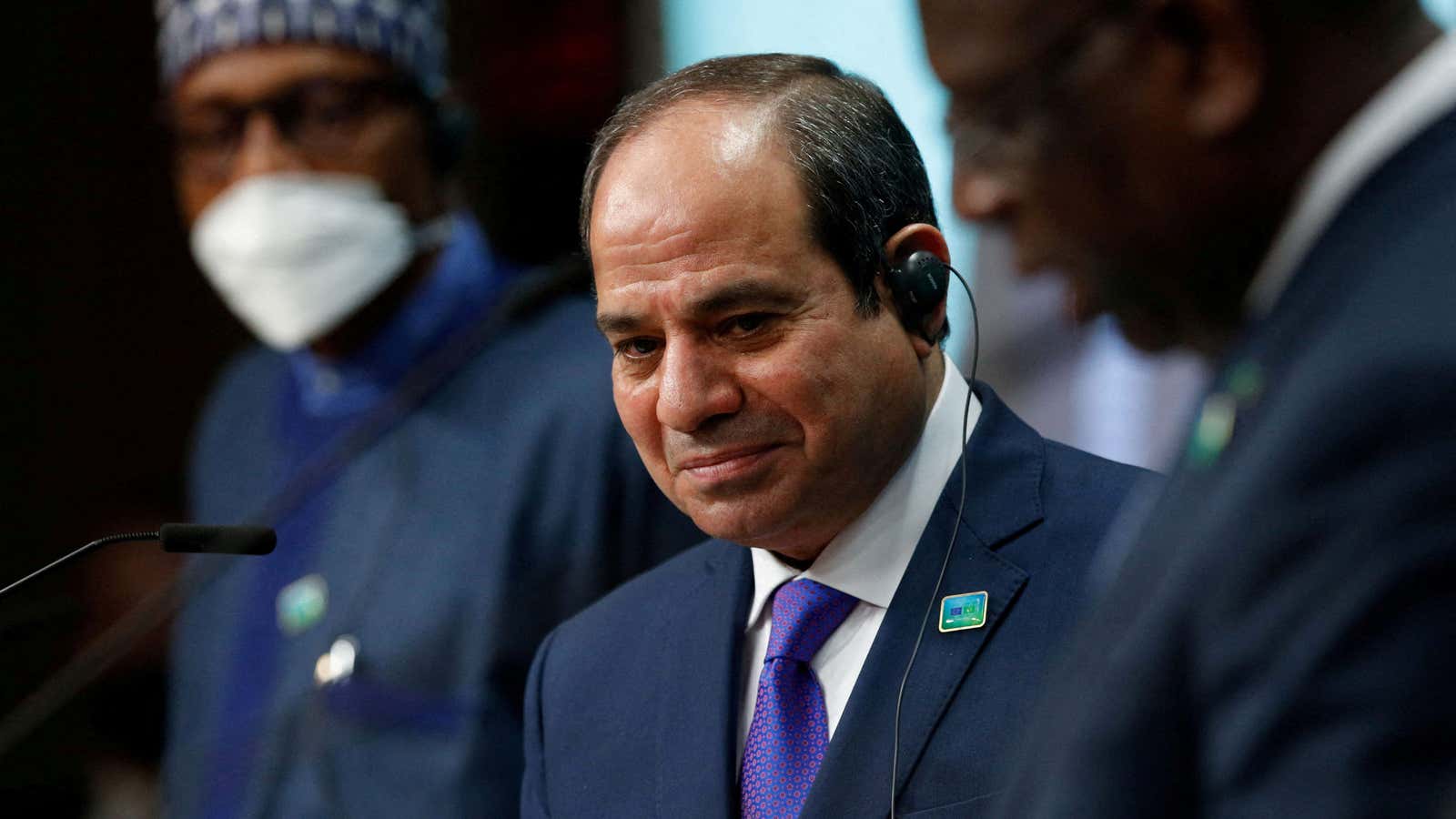As governments such as Europe and the US make plans to block imports of Russian oil, they’re left with fewer alternatives for where to get their natural gas. Russia is taking advantage of that dependence and stepping up pressure on European countries to pay for Russian natural gas imports in rubles to prop up the value of the Russian currency. It has already cut off gas supplies to six countries, including Germany and Denmark, that refused to do so.
As gas prices skyrocket and European countries scramble for non-Russian gas suppliers, other emergent gas exporters are reaping a windfall.
In the first four months of 2022, gas export revenues in Egypt reached $3.9 billion, according to Reuters. That’s as much as the country earned from gas in all of 2021—and 768% higher than its gas revenue in all of 2020.
After making one of the biggest-ever offshore gas discoveries in the Mediterranean in 2015, Egypt is angling to become a major player in the global liquified natural gas market. In April, it inked a deal with Italian gas giant Eni to ramp up production and streamline the export process. It is also accelerating plans to build an underwater electricity transmission line to Greece, which would deliver power to Europe from Egyptian solar and wind farms.
Egypt is also facing steep import costs
Still, the gas windfall may not be enough to offset the rising cost of vital imports, Egyptian officials warned. Egypt is a net importer of oil and the world’s top importer of wheat; prices for both commodities are soaring. The rising cost of bread is such a concern for the government—bread prices were one important driver of the 2011 revolution—that police have arrested dozens of local producers and traders accused of illegally smuggling wheat out of the country.
